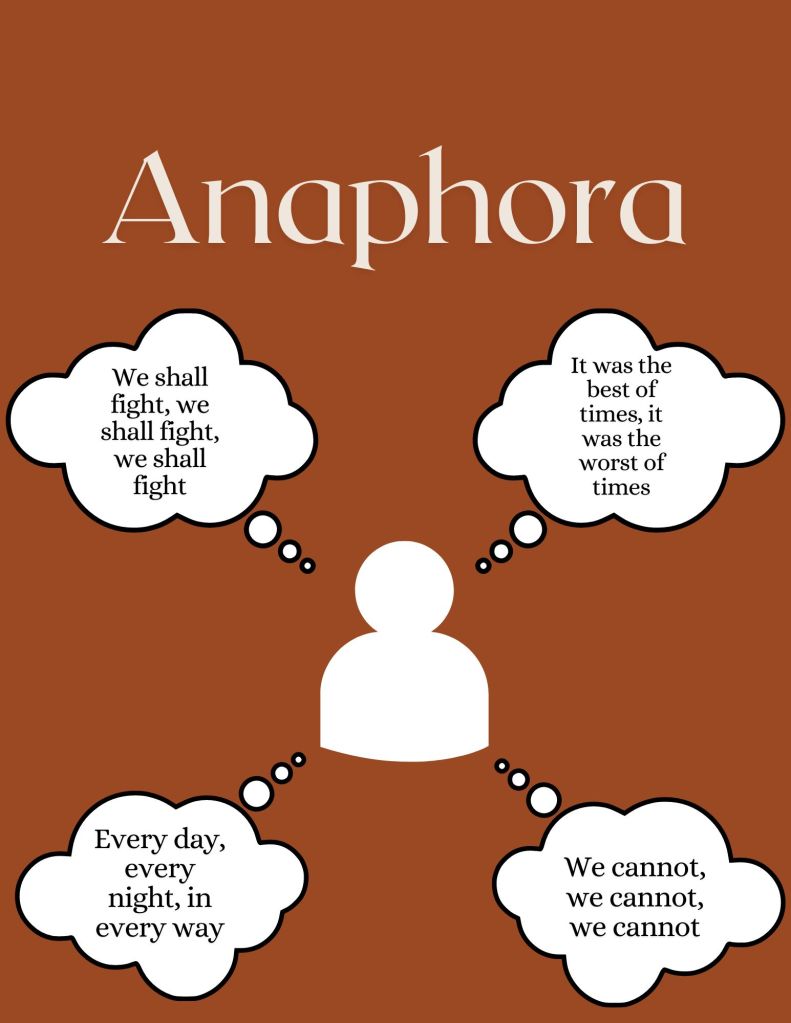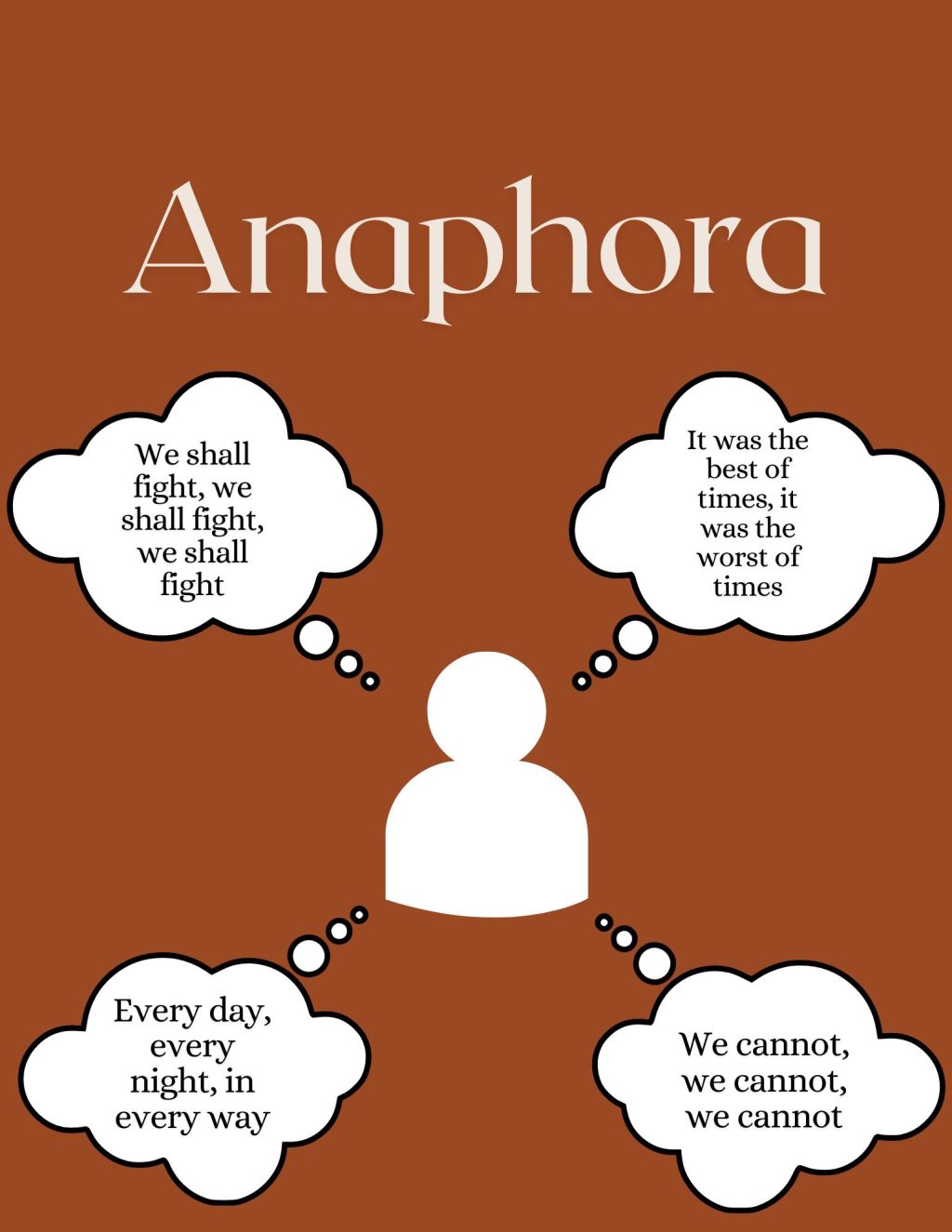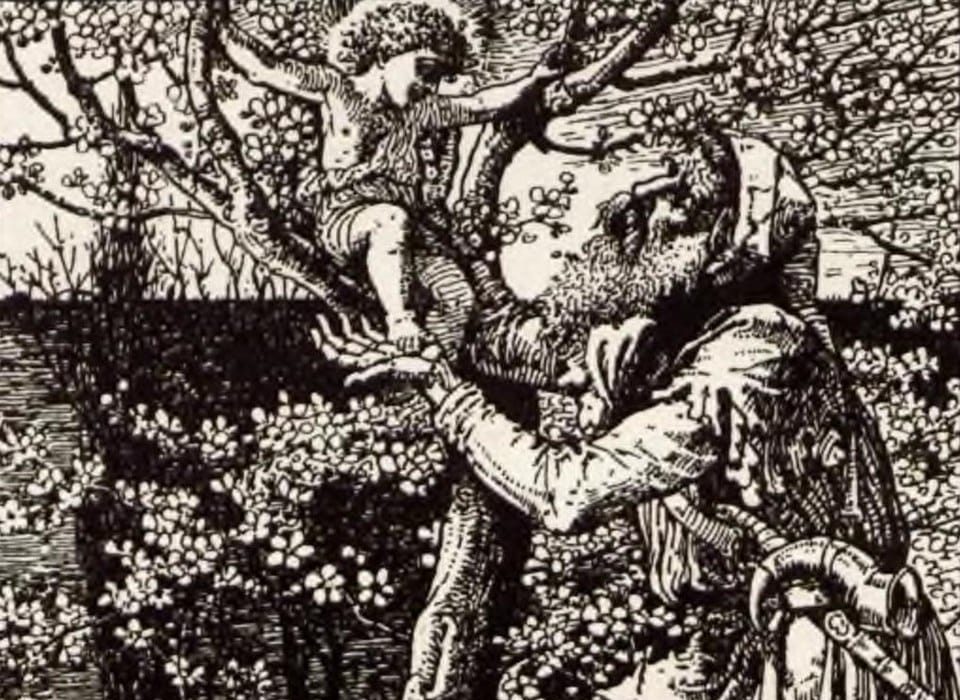Repetition has a lot of power if used correctly. Especially repetition in speech. In rhetorical studies, using language to persuade and to writing compelling arguments is essential. Similarly, there are many strategies in rhetoric, from anacoluthon to polemics. In this post, we will be defining anaphora, and figure out what it is and how to use it in writing.
What is anaphora
In defining anaphora, we can view it as a “rhetorical device in which a word or expression is repeated at the beginning of a number of sentences, clauses, or phrases” (Merriam-Webster). Simply put, anaphora is the usage of a word or collection of words at the beginning of a sentence in order to emphasize a section or make a point. As such, anaphora’s effectiveness becomes evident when thinking of repetition in poetry and speeches. It forces the audience to hone in on your statement or the point you are trying to make.
Examples
Here are a couple of examples from the same source we can compare:
- Winston Churchill to the House of Commons on June 4th, 1940: “We shall fight in France, we shall fight on the seas and oceans, we shall fight with growing confidence and growing strength in the air…” (Merriam Webster).
- Abraham Lincoln: “we cannot dedicate–we cannot consecrate–we cannot hallow–this ground” (Merriam-Webster).
In these examples, anaphora is only a pair of words. Churchill’s quote utilizes “we shall” as a repetitive phrase while Lincoln uses “we cannot” for repetition.
Additionally:
- A Tale of Two Cities by Charles Dickens: “It was the best of times, it was the worst of times, it was the age of wisdom, it was the age of foolishness, it was the epoch of belief, it was the epoch of incredulity, it was the season of Light, it was the season of Darkness…”

How to use it in your own writing
As posited here, there are three main purposes of anaphora:
- When writing poetry or fiction–or perhaps a speech–you can use anaphora to create emotion in your writing by repeating a powerful phrase (I have a dream). Consequently, your use of anaphora will sway your readers to feel a certain way.
- You can use it emphatically to bring attention to oneself (We came, we saw, we conquered). Mainly, you can use anaphora in this way to highlight a key idea or theme. It makes whatever you’re writing more memorable and impactful.
- You can also use it repetitively to create rhythm in your writing. Poems benefit from repeated phrases. For example, “Acquainted with the Night” by Robert Frost wherein he states: “I have been one acquainted with the night. / I have walked out in rain–and back in rain. / I have outwalked the furthest city light.” As seen in the poem, Frost uses “I have” to create a lyrical rhythm to guide the reader.
Finally, remember to use anaphora sparingly. It is effective when it is short and impactful.
Conclusion
Thus, defining anaphora involves repetition, and you can use it for several key purposes: to evoke emotion, to emphasize important points, and to add lyrical rhythm to your writing. When used correctly, anaphora draws readers to your work, creating a powerful impact—whether emotional, emphatic, or rhythmic.





Leave a comment